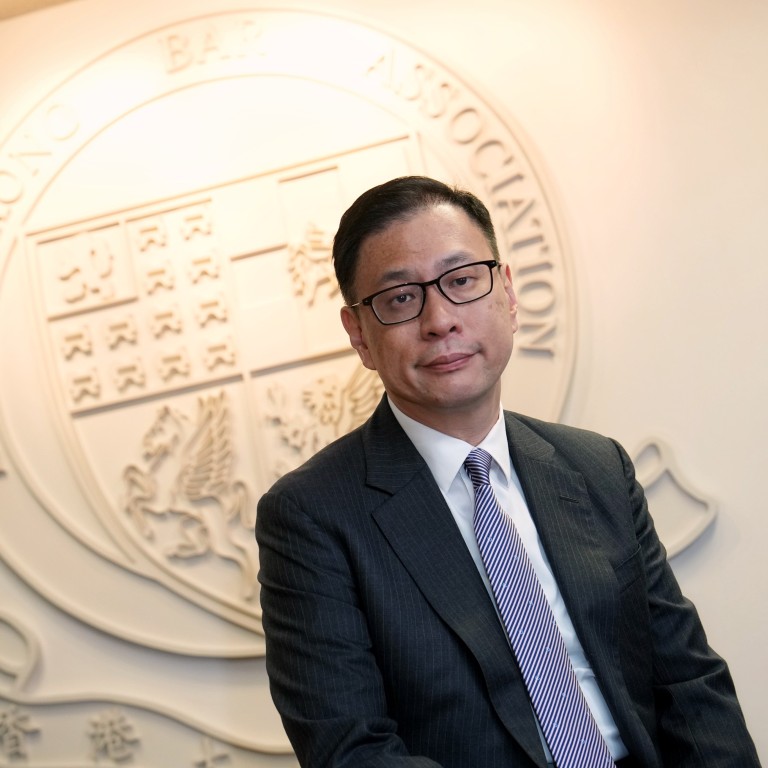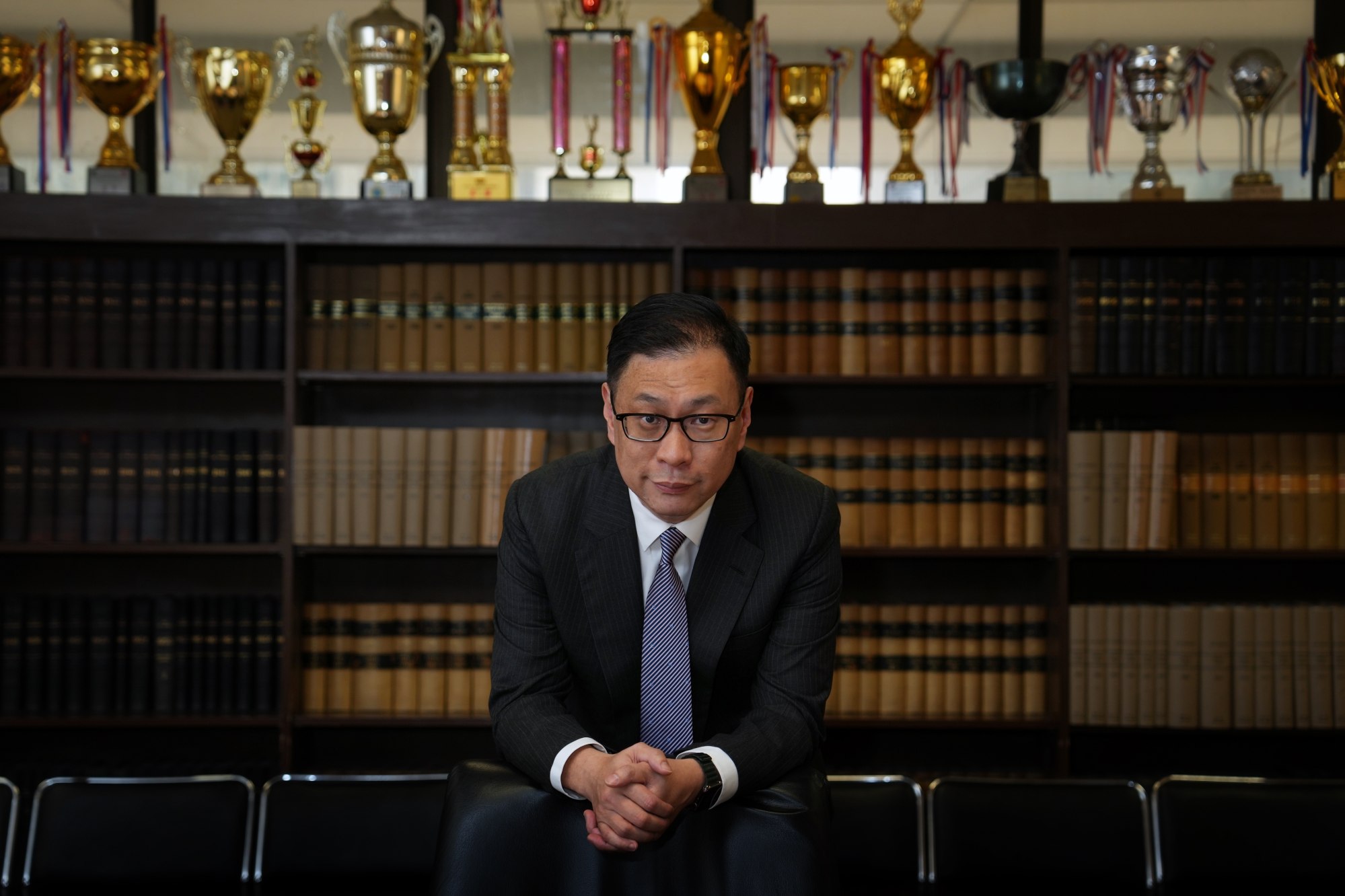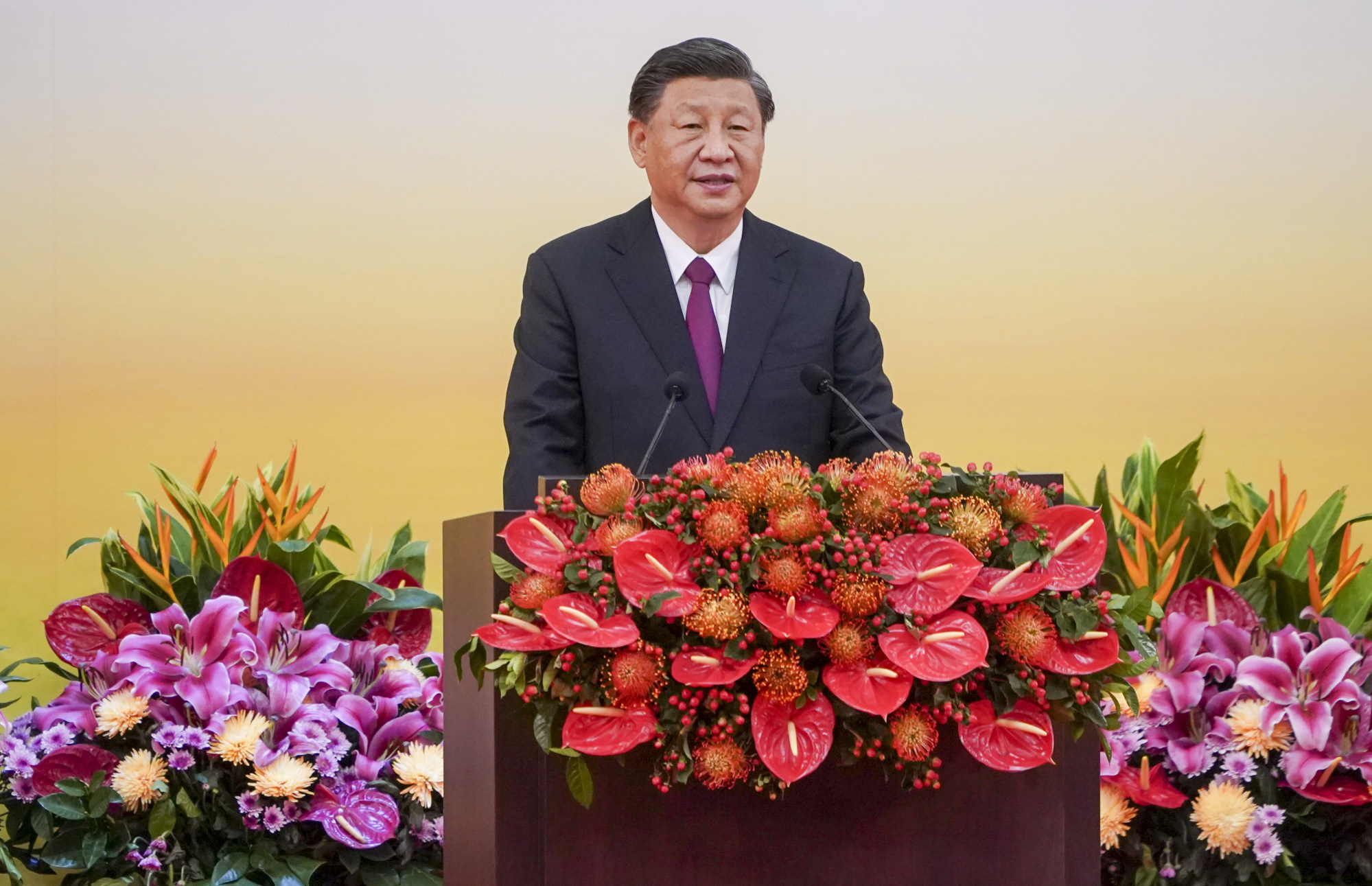
Exclusive | Hong Kong Bar Association to go on ‘ice-breaking’ trip to Beijing after being frozen out for 5 years
- Chairman Victor Dawes reveals Beijing’s chief of Hong Kong affairs asked him for a meeting in Shenzhen to discuss concerns of the city’s legal fraternity, including the future of common law system
- Regular exchanges with mainland authorities to resume after five years of suspension
The Hong Kong Bar Association will lead a 20-member delegation to the country’s capital in April in a significant thawing of relations after such exchanges were frozen five years ago and amid assurances from Beijing that the city’s common law system will remain unchanged.
In an exclusive interview with the Post on Wednesday, association chairman Victor Dawes, SC, also revealed that Xia Baolong, director of the State Council’s Hong Kong and Macau Affairs Office (HKMAO), had sent out a reassuring message in a private meeting with him that the city’s independent bar would remain a vital part of the common law system which in itself was critical to Hong Kong.

“At the meeting with Xia, I raised the concern of some young barristers that there is no independent barristers profession in mainland China and whether the independent bar in Hong Kong will disappear in the future,” Dawes said.
“I was then assured by him that he saw the independent bar as part of the common law system in Hong Kong and there is no reason to change our system.”
Ahead of the ice-breaking visit to Beijing, he revealed the association had also started to resume regular activities with the mainland with some members recommencing in-person teaching classes about the common law system in Peking University this month.
Describing the visit as “meeting old friends and making new friends”, Dawes said he was informed by Beijing authorities some time ago that the association could make the 20-member delegation visit from April 11 to 15 to Beijing.
Bar Association head calls for rethink on ban on foreign counsel national security cases
“The annual visit to Beijing by the Bar Association had been going on for many years. It had been stopped for a few years, partly because of Covid and also partly because of other reasons. So we’re encouraged that we can resume the annual visit,” he said.

Founded in 1949, the Bar Association was on good terms with Beijing for years following the city’s return to Chinese rule in 1997. It had a tradition of sending delegates to the capital every year to meet officials and hold lectures on common law at mainland Chinese universities.
‘Hong Kong’s common law system can benefit China’s belt and road plan’
In his interview with the Post, Dawes said the association’s delegation would relay the members’ views to Beijing authorities about an array of issues, including the national security law, the coming Article 23 legislation and risks of Western sanctions as part of the challenges facing the legal profession.
“I’m sure we’ll touch upon a wide range of subjects that Hong Kong people are concerned about and we will do our very best in relaying an accurate and comprehensive view to the central authorities … I am consulting my members as to the sort of messages they want us to bring with us.”
Dawes pledged there would be frank dialogues between the association and mainland authorities to seek mutual understanding, stressing that the trip was not for the purpose of exchanging favours with Beijing.
“If you asked me whether I want something concrete, I can only say that it is the opportunity to convey the views of the legal professionals of the bar, and also the views of Hong Kong people,” he said.
“I’m sure the central government would not want the bar to just sugarcoat anything or report positive developments.”
Hong Kong legal chiefs ‘encouraged’ by Xi remarks on common law, judiciary
On his meeting with Xia, Dawes said the HKMAO chief also emphasised the importance of maintaining “one country, two systems” alongside the preservation of the common law system in Hong Kong, as he asked him to send out the message across the profession, especially to young barristers.
“I think this is very encouraging. It shows that the central government actually is keen on preserving the common law system in Hong Kong,” he said.
Beijing’s emphasis on the need to uphold the common law system in recent months was seen by analysts as recognition of Hong Kong’s importance as a connector between the mainland and the world for business and other commercial interactions.

On business opportunities that could be gained from the resumption of ties with mainland authorities, Dawes pointed to the rising demand for common law expertise in building up a regional dispute resolution hub for the city, something which the authorities had been working hard on and was part of the country’s 14th five-year development plan.
Top Chinese diplomat backs Hong Kong international mediation office
“Mainland and overseas clients trust the city’s common law system … Using common law for dispute resolution is something very popular. It is also the policy of the central government to promote Hong Kong as a regional dispute resolution hub,” he said.
“So, I think Hong Kong practitioners actually have a vital role to play not only for Hong Kong, but also in promoting common law in exchange and in passing on our knowledge in helping [mainlanders] studying to be lawyers.”
Law Society president Chan Chak-ming, meanwhile, will also lead a duty visit to Beijing with his fellow council members from March 27 to 31.

